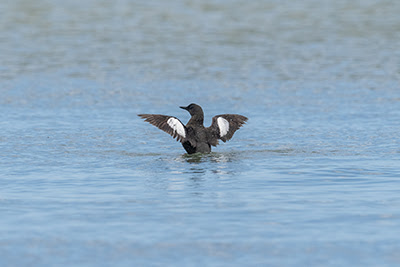Our Curlews are in trouble. The UK's breeding population us halved in the last 25 years. Once common in some areas of lowland Britain such as the Brecklands of East Anglia and in moorland areas such as the peak District and areas of North Wales their haunting bubbling display call is becoming a less familiar sound. They are amber listed in the UK and classified as globally threatened across their range. A number of factors are thought to be playing their part in the species decline including agricultural intensification and predation.
Their onomatopoeic 'curlew, curlew' call is still a familiar sound on our estuaries as UK numbers are boosted by winter migrants from northern Europe but our resident breeding population is in a downward spiralling decline.
As such theres a lot of research going on as to what is causing this decline and eggs that would otherwise been destroyed on military bases in the Brecks are now being hatched in incubators and the youngsters being returned to the wild. See here for more information on the head starting project. When humans have to intervene in this way you know a species is in serious trouble.
The ECHOES project is another project looking at Curlew populations - ECHOES studies the effect of climate change on bird habitats around the Irish Sea. See here for more information. This includes the North Wales coast where the SCAN ringing group have been monitoring wading bird populations for many years. I was lucky enough to join them on a recent Curlew catch where a good sample were canon netted and as well as new birds ringed we caught a number of retraps giving valuable data on longevity and survival.
To no longer hear Curlew calling when walking in our moorland national parks would be a sad reflection on our society. Hopefully the research thats being carried out can help reverse the fortunes of this charismatic species. As a kid I used to visit my grandparents, who lived on the edge of Dartmoor, and listened to the Curlews calling in the meadows behind their house through the open windows. Now they're probably extinct as a breeding species on Dartmoor. It's sad to think this has happened in my lifetime.




























































No comments :
Post a Comment